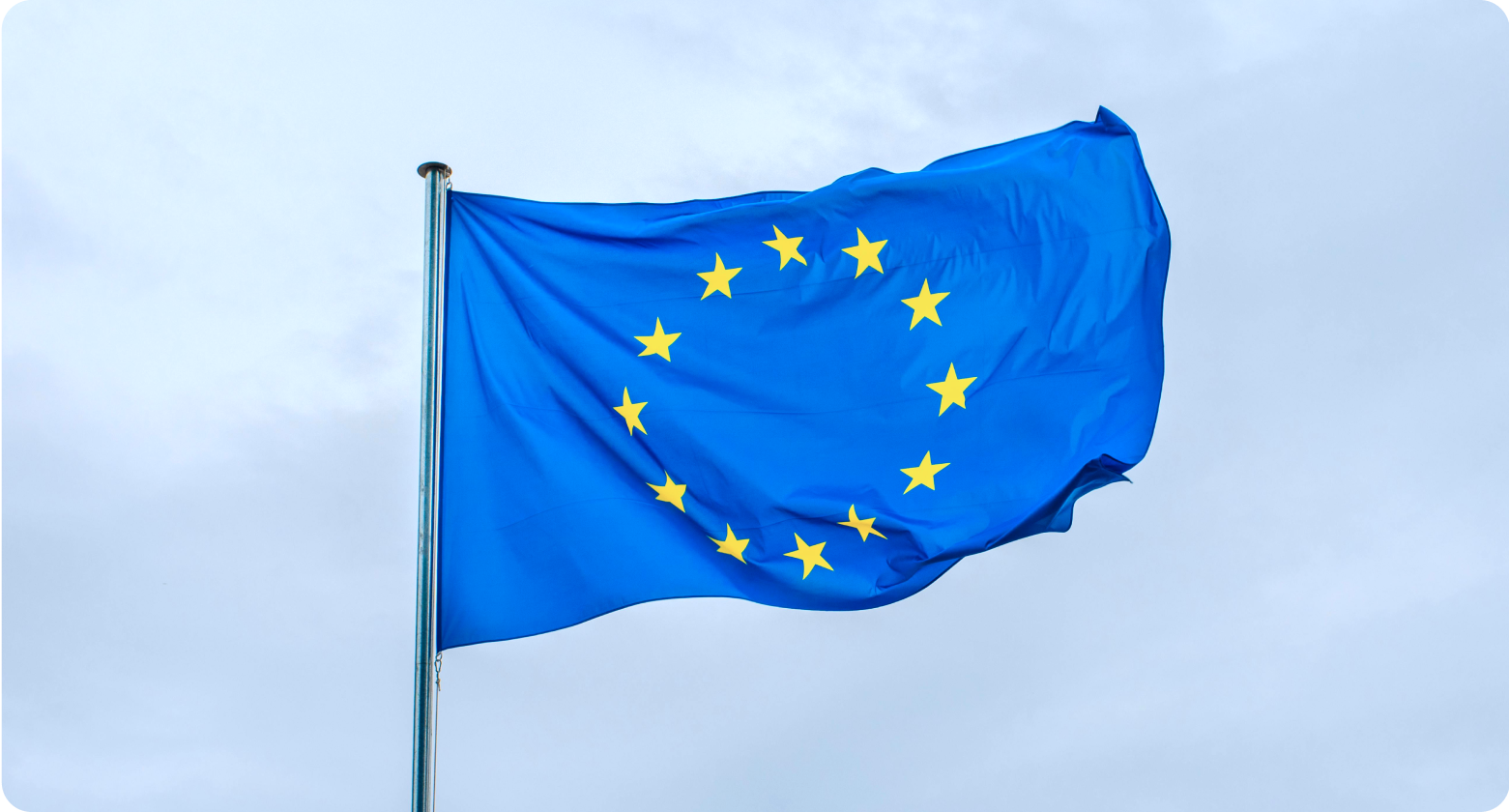Copied to Clipboard
Ready to get Started?


Key Takeaways
EU hiring is governed by 27 different employment systems, each with unique rules on contracts, terminations, benefits, payroll, and compliance, making local expertise essential.
Work eligibility and onboarding requirements vary widely, with differing registration processes, tax IDs, social security rules, and immigration pathways for non-EU nationals.
Payroll and reporting obligations are complex and highly regulated, with country-specific systems like Germany’s DEÜV/ELSTER, Spain’s SILTR@, and the Netherlands’ UPA.
Compliance failures carry significant risk, including fines, audits, operational delays, and invalid employment contracts.
Hiring in the European Union opens the door to a deep pool of skilled professionals and some of the world’s most innovative markets. But for HR leaders expanding internationally, the EU can also present one of the most intricate and highly regulated hiring environments anywhere on the globe. With 27 member states, each operating under its own employment system and layered with EU-wide directives; the process of building a compliant team often becomes far more complex than companies expect.
This article breaks down the biggest HR challenges involved in hiring across the EU in 2026 and explains how growing companies are navigating them successfully.
8 Key HR Compliance Challenges to Know When Expanding into the EU
Successfully hiring in the EU requires navigating a complex landscape of HR compliance challenges. With this compliance guide, you’ll learn why hiring in the EU is more complex than it looks, how employment laws differ from country to country, what to expect from payroll and onboarding processes, and how EOR partners help global teams expand into Europe with confidence.
1. Navigating 27 Distinct National Employment Laws
Although the EU introduces common employment frameworks (like the Working Time Directive, GDPR, and the Transparent & Predictable Working Conditions Directive), individual member states maintain full control over core employment regulations. This creates significant variation in compliance requirements, including:
Employment Contracts
- Germany mandates a Nachweisgesetz-compliant written statement of terms.
- France requires strict adherence to the Code du Travail, including mandatory clauses and classification under collective bargaining agreements (CBAs).
- Spain mandates written contracts for most employment types and prescribes specific contract models.
Notice Periods & Termination Rules
- In the Netherlands, dismissals require approval from the UWV or subdistrict court, except in rare cases.
- Germany’s statutory notice periods increase with tenure, up to seven months.
- Portugal requires justification for termination and advance notice aligned with tenure and contract type.
Mandatory Benefits & Entitlements
- Italy mandates 13th and often 14th-month salary payments via CBAs.
- Sweden enforces extensive parental leave rights (480 days).
- France requires supplementary health insurance (mutuelle) funded partly by the employer.
EU-wide directives unify high-level worker protections, but the execution is national, complex, and constantly changing.
2. Work Eligibility and Immigration Requirements
Even within the EU, workers often face administrative steps to become compliant in a new country.
EU/EEA nationals may need:
- Local population registration (e.g., BRP in the Netherlands after 4 months)
- An EU Residence Document (Denmark within 90 days)
- Municipal registration shortly after arrival (Belgium within 8 days)
For non-EU nationals, the process is far more complex. Immigration rules differ significantly, especially around:
- Highly skilled permits, including the revised EU Blue Card, which in 2026 requires salary thresholds such as ~€45k–€56k in Germany or ~€46k in France
- Labor market tests in countries like Austria and Spain
- Processing times, which range from several weeks to several months
- Quota systems, particularly in countries like Italy
A hire who seems straightforward on paper might require months of legal and administrative coordination in reality.
3. The Documentation Burden: Same Region, Different Rules
Once a candidate is selected, the onboarding process introduces another wave of country-specific requirements. Identity verification procedures differ, with some jurisdictions requiring additional civil status documentation or local registration certificates. Proof of address rules vary, as do expectations around local bank accounts; Germany and the Netherlands still commonly expect employees to be paid into a SEPA-compliant EU account.
Bank Account Requirements
- Germany and the Netherlands still commonly expect employees to provide an EU/SEPA-based bank account, though exceptions exist.
- Spain accepts international IBANs but employers must ensure SEPA compatibility.
Tax Registration
- Italy: Codice Fiscale
- Germany: Steuer-ID
- Sweden: Personnummer (tax and civil number)
Social Security Registration
Every country operates its own system—e.g.
- Germany: Krankenkasse-linked system
- Italy: INPS
- France: URSSAF
Failure to manage these correctly can delay hiring by weeks.
4. A Strict Enforcement Environment With Heavy Penalties
Europe has some of the toughest enforcement regimes globally when it comes to employment violations. Penalties for hiring individuals without proper authorization can be severe: in Ireland, fines can reach €250,000 along with potential jail time; in the UK, which remains a key hiring location for many European teams, penalties increased in 2024 to £60,000 per illegal worker. Countries like Denmark require employers to maintain employment and payroll records for at least five years, while France imposes fines per infraction and, in serious cases, can order operational shutdowns.
Even administrative oversights, misleading employment terms, incomplete contract clauses, or overlooked registration steps—can trigger audits and sanctions. Compliance is non-negotiable.
5. Language Requirements That Affect Contracts and Documentation
Another challenge for HR teams is the requirement, in many cases, to issue employment contracts and official documents in the local language. France’s Toubon Law, for example, mandates French-language employment agreements. Belgium’s language-region rules require Dutch, French, or German depending on the company’s location. Countries like Poland, Italy, and Spain expect contracts to be drafted in the local language for enforceability, even if a bilingual version is also provided.
This extends beyond contracts to safety documentation, works council communications, and sometimes payroll materials. Companies that overlook local-language rules risk unenforceable contracts and compliance disputes.
6. Payroll, Tax, and Social Security Complexity
Each EU country administers its own tax and social security system. Variations include:
Tax Withholding Structures
- Progressive tax systems (e.g., Germany, Denmark, Finland)
- Flat or near-flat tax regimes (e.g., Hungary 15% personal income tax)
- Multiple municipal or regional taxes (e.g., Italy’s IRAP, Spain’s provincial additions)
Social Security Contributions
Employer contributions range dramatically:
- France: Often 30–45% of salary
- Germany: ~20–22%
- Lithuania: ~1.77% employer contributions (most paid by employee)
- Sweden: ~31.42%
Payroll Reporting
Payroll reporting in the EU is far from standardized, and each country imposes its own filing formats, timelines, and digital systems. Some require monthly submissions, others quarterly or annually, and in many cases, employers must manage multiple reporting tools simultaneously. This creates a significant operational burden for HR and finance teams, especially when hiring across several EU jurisdictions.
Monthly, quarterly, or annual reporting varies:
- Germany: DEÜV and ELSTER filings
- Spain: Nómina reporting via SILTR@
- Netherlands: UPA (Uniform Wage Declaration)
Incorrect payroll compliance exposes companies to audits and penalties.
7. Cultural and Workplace Norms That Influence HR Practices
Beyond regulations, cultural differences across Europe shape workplace expectations. Dutch organizations often favor consensus-based decision-making, whereas German companies typically follow structured, process-driven working styles. Southern European countries place greater emphasis on interpersonal relationships and flexible work rhythms. Nordic countries, known for flat hierarchies and strong work-life norms, set different expectations around autonomy and work distribution.
These nuances affect recruitment strategies, performance management, benefits preferences, and employee engagement—making the “EU workforce” anything but uniform.
8. Administrative Setup Requirements Before Hiring Begins
In many EU countries, a company cannot legally employ a worker until it has completed several local registrations. These often include:
- Employer tax registration
- Social security registration
- Local payroll setup
- Mandatory pension or insurance schemes
- Industry-specific registrations where applicable
For companies without a legal entity in the country, this setup process can take weeks or months, and must be repeated for each new EU market they enter.
Why Many Companies Choose an Employer of Record (EOR)
Given the complexity of hiring across 27 distinct legal systems, it’s no surprise that many companies turn to an Employer of Record to manage the compliance burden. An EOR like Playroll ensures employment contracts adhere to local law, handles payroll and tax withholding, manages social security registrations, ensures employees receive the correct statutory benefits, and stays ahead of ongoing legislative changes.
Instead of setting up entities, building country-specific onboarding processes, or managing legal compliance in-house, companies can focus on finding the right talent, while EORs handle the regulatory foundations that make compliant hiring possible. In short, EORs are responsible for:
- Compliance with local employment laws
- Drafting country-specific employment contracts
- Payroll, tax, and social security administration
- Work eligibility checks and immigration support
- Benefits enrollment and statutory entitlements
- Continuous monitoring of legislative updates
This lets HR teams hire quickly and compliantly across Europe, without building an entire internal compliance function or setting up local entities.
Key Takeaways
Hiring in the EU can be transformative for global teams, but it requires navigating some of the world’s most complex labor laws, documentation processes, and cultural expectations. With high penalties for non-compliance and constantly evolving legislation, companies need a structured and well-informed approach, or the right partner, to expand confidently across European markets.
EU Compliance FAQs
What are the EU compliance regulations?

.png)
EU compliance regulations are a broad set of laws and standards ensuring safety, transparency, and accountability across the European Union. Key examples include the General Data Protection Regulation (GDPR) for data privacy, the EU AI Act for regulating artificial intelligence, and product safety directives for items like toys, medical devices, and vehicles. These rules, updated as of 2025, protect consumers, employees, and the environment while standardizing practices across EU member states.
What are the challenges of the EU AI Act?

.png)
The EU AI Act, effective August 1, 2024, poses challenges for businesses, especially with high-risk AI systems in sectors like healthcare and finance. Compliance requires rigorous risk management, data governance, and transparency, which can be complex and resource-intensive. SMEs often face difficulties due to limited budgets for conformity assessments and training, while the rapid pace of AI innovation makes it tough to keep up with evolving regulatory demands.
What is an EU compliance certificate?

.png)
An EU compliance certificate verifies that a product, system, or process meets EU regulatory standards, such as those in the EU AI Act or product safety laws. For example, high-risk AI systems require pre-market conformity assessments, detailed technical documentation, and ongoing compliance checks. Often linked to the CE marking, this certificate ensures goods or services can be legally sold and operated within the EU market.
.svg)
.svg)
.svg)

.svg)
.svg)




.svg)















.svg)